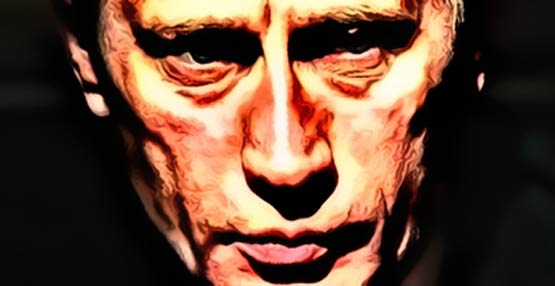
Alexander Petrov and Ruslan Boshirov - identified by British authorities as the Russian intelligence agents who poisoned four people in the English town of Salisbury - were simply on vacation: "Our friends had been suggesting for some time that we visit this wonderful town."
Sweating, nervous, thuggishly coiffed and wearing similar sweaters, this is what Petrov and Boshirov (not their real names, the British say) told Margarita Simonyan, the editor in chief of the propaganda channel RT (formerly Russia Today): Yes, they are the men in the videos and photographs produced by British police.
Yes, they were in Salisbury at the time of the attack on Sergei Skripal, a former Russian spy, and his daughter. But no, they knew nothing of the Skripals or their house.
"I wish somebody told us where it was," said Petrov. "Maybe we passed it, or maybe we didn't," said Boshirov.
On the first attempt - the British say this was a reconnaissance mission - the two men stayed only an hour and didn't manage to walk the few hundred yards from the train station to the cathedral because of the terrible snow and slush. (Pictures from the day show the streets were clear.)
On the second attempt - the day Novichok, a powerful nerve agent, was sprayed on Skripal's front door - they say they made it to the cathedral, even though they were photographed walking in the opposite direction. Their memories of this Gothic masterpiece were not very detailed. "There are lots of tourists," said Boshirov, "lots of Russian tourists."
Simonyan tried, albeit not very hard, to make the interview seem genuine. She asked why they spent so much time together, insinuating that perhaps they were gay. She asked where they worked ("fitness industry . . . Supplements for athletes, vitamins") and was sorry that they couldn't give any details ("I just don't want this story to affect our clients"). She did her lukewarm best to make it seem completely normal to fly to Britain from Moscow, stay in distant east London, leave traces of deadly poison in the hotel room, travel across town not once but twice to get the train to Salisbury, west of London - and then to high-tail it straight back home from Gatwick Airport.
Why did she bother? Or, more accurately: Why was she told to bother? Because the production of blatant lies is useful. Although many in Britain mocked the interview (playing along, the @SalisburyCath account tweeted a lovely photograph of its "123-meter spire"), far-left activists and conspiracy theorists have already seized on it, picked it apart and found enough shreds of "evidence" to keep their arguments going. Pro-Russian businesspeople, politicians and columnists who want to stop further sanctions will find something in it, too.
Some will surely declare that this whole thing is so absurd, we'll never know what really happened and we should just forget about it.
This type of tactic has a history. At the time of the invasion of Crimea, Vladimir Putin insisted that the Russian troops marching across the peninsula were locals who had picked up their army equipment in "military surplus shops." Absurd though it was, that lie was just plausible enough to muddy the waters.
Remember, talk shows at the time were debating "Is this an invasion?" rather than "What are we going to do about it?" That worked for Russia - and also for those in the West who wanted to do nothing.
The same will be true of this story. Russian money matters, not just in London but in Berlin, Paris and farther afield. Those who depend on it will happily lap up the holiday tales of Boshirov and Petrov as an excuse to ignore their crimes, postpone sanctions and change the subject.
There could be other explanations for this performance as well. The sheer effrontery of the interview, like the effrontery of this attack, sends a message: We don't care what any of you think. If we want to kill Russians in Britain, we will.
And if we want to turn this into a farce, we'll do that, too. It was Putin himself who declared that the state had identified the two men ("ordinary civilians") and who called for them to be interviewed.
While we were laughing at the incompetent hit men, he was surely laughing at the British, and the West more broadly, who have proved completely incapable of stopping them.
Anne Applebaum is a Washington Post columnist.She is also the Director of the Global Transitions Program at the Legatum Institute in London.


 Contact The Editor
Contact The Editor
 Articles By This Author
Articles By This Author